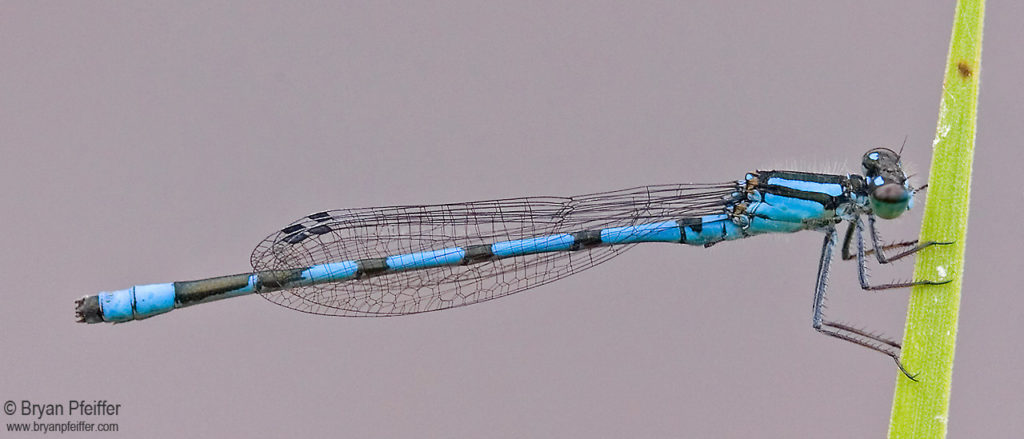 One of the widest and most evenly distributed Enallagma in Vermont. Occurs in a variety of marshy, pond and slow river habitats. Easily confused in the field with Hagen’s Bluet (E. hageni), with which it shares similar habitats. However, Marsh Bluet is more common in the Champlain Valley and close to the Connecticut River than Hagen’s Bluet. McPeek (1989) found Marsh Bluet more likely to inhabit water bodies subject to winter fish kills than Hagen’s Bluet.
One of the widest and most evenly distributed Enallagma in Vermont. Occurs in a variety of marshy, pond and slow river habitats. Easily confused in the field with Hagen’s Bluet (E. hageni), with which it shares similar habitats. However, Marsh Bluet is more common in the Champlain Valley and close to the Connecticut River than Hagen’s Bluet. McPeek (1989) found Marsh Bluet more likely to inhabit water bodies subject to winter fish kills than Hagen’s Bluet.
Conservation Status
State: S5
Global: G5
Flight Period
May 28 – August 27






